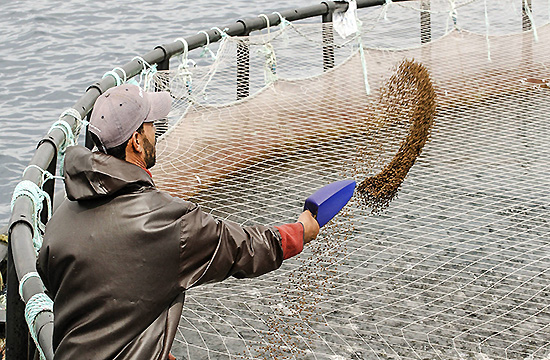
Organic aquaculture offers significant environmental and health benefits, emphasizing sustainable practices that reduce the industry's ecological footprint. By minimizing the use of chemicals, antibiotics, and artificial feeds, organic aquaculture promotes healthier aquatic ecosystems and reduces the risk of environmental degradation.
This approach aligns with long-term sustainability goals, creating a legacy of responsible aquaculture for future generations.
Organic aquaculture fosters ecosystem harmony and preserving biodiversity. By prioritizing sustainable practices and minimizing environmental impact, organic aquaculture contributes to maintaining healthy aquatic ecosystems.
This approach aims to balance fish farming and environmental protection, ensuring the preservation of diverse species and the overall well-being of marine environments.


The emphasis on organic aquaculture products has increased consumer awareness and demand for sustainable seafood. By promoting organic produce's ecological and health advantages, marketing efforts have influenced consumer behavior and preferences.
This shift towards sustainable seafood consumption benefits the environment and supports the economic viability of organic aquaculture operations.
Investing in research and development for organic aquaculture can revolutionize fish farming, driving innovation and promoting resilience in aquaculture practices. Organic aquaculture can enhance traceability, transparency, and efficiency by leveraging ag tech and digital farming advancements.
This collaborative approach fosters a community committed to sustainable food production, ensuring the environment's well-being and future generations.


Organic aquaculture aligns with long-term sustainability goals for the industry and the environment. By focusing on sustainable practices and environmental stewardship, organic aquaculture creates a lasting legacy of responsible aquaculture.
This approach benefits aquatic ecosystems and contributes to the industry's economic viability, ensuring organic aquaculture's resilient and sustainable future.

